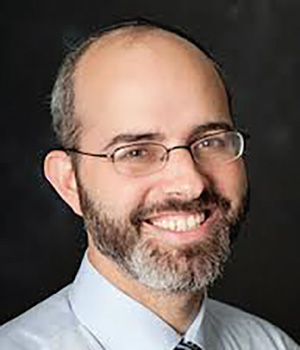
May these words of Torah serve as a merit le’iluy nishmat Menachem Mendel ben Harav Yoel David Balk, a”h.
This week we learned Avoda Zara 41. These are some highlights.
Avoda Zara 41: A patient wanted to cancel an agreement when he saw that the treatment did not work for the doctor. May he do so?
Chashukei Chemed relates a story. A man had a medical problem. He approached his doctor. The doctor suggested a course of treatment. The doctor confided to the patient that he himself was suffering from the same medical condition and was planning to administer to himself the same course of treatment. The patient agreed to utilize the services of the doctor to administer the specialized treatment. The doctor started to give the patient the specialized treatments. The doctor was himself utilizing the same treatments. The treatments failed for the doctor. They did not heal him at all. When the patient heard how the doctor had failed, the patient wanted to switch doctors and courses of treatment. The doctor protested. “That is unfair. You had agreed to pay me and utilize my services. Each person’s body is different. The fact that the treatment did not work for me is immaterial to the treatment possibly working for you.” Who is right in this dispute?
Rav Zilberstein suggests that our Gemara might seem to indicate that the doctor was right. The Gemara has a dispute between Reish Lakish and Rabbi Yochanan about an idol that breaks on its own. A gentile can annul the status of idolatry from an idol. If a gentile breaks off a piece of the idol and declares that he does not consider the idol to be a religious article, it loses its status as an object of idolatry. If a gentile would break the idol that would be an act of bittul, annuling the idolatrous status; what about when the idol breaks on its own? Rav Yochanan is of the opinion that the idol pieces remain prohibited. No one broke the idol to remove its idolatrous nature. Reish Lakish feels that the pieces are no longer idolatrous. A gentile certainly said to himself, “If the idol could not protect itself, it is certainly no god, and it cannot protect me.” From Reish Lakish’s position it would seem that people say, “If it could not help itself, it will certainly not be able to help me.” The patient is therefore entitled to say, “Since your treatments did not work for you, they will not work for me and I do not need to continue with the treatments that I promised I would pay for.” A man who does not trust his doctor has a harder time successfully recovering with treatments from that physician. Rosh writes (Perek Hachoveil, entry aleph), “A man only recovers when he feels good about his doctor.” Since in our case the man would be entitled to distrust the doctor’s treatments, he should be allowed to back out of the deal.
Ultimately, Rav Zilberstein argues that the patient is not entitled to back out of the agreement. Each person’s body is different. What works for one person may not work for the other. Gemara Nedarim (41b) states that a person does not merit getting healed from everyone. Only certain people will be successful with particular people. The fact that a treatment did not work for the doctor is not proof that it might not work for the patient. In our Gemara we dealt with an idol, not a person with a unique body. Even idolators suspect that their idols cannot help them. When the idol breaks on its own, they say to themselves, “If it could not protect itself, it cannot protect me.” But with medicine, each person’s body is different. If the doctor is trusted by the community, the patient should trust him and cannot back out of his agreement just because the treatment did not work for the doctor himself. (Chashukei Chemed)
By Rabbi Zev Reichman
Rabbi Zev Reichman teaches Daf Yomi in his shul, East Hill Synagogue.










